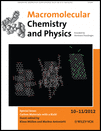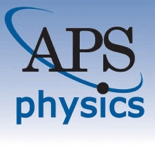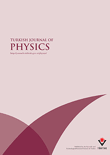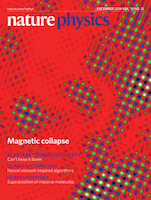
Soft Matter
metrics 2024
Illuminating the Complex World of Soft Matter
Introduction
Soft Matter, published by the Royal Society of Chemistry, stands as a premier journal in the interdisciplinary field of soft matter science, encompassing studies in materials that are neither entirely solid nor liquid, such as polymers, colloids, and biological materials. With an impressive impact factor indicative of its relevance and citation frequency, Soft Matter has secured a notable position in the academic community, achieving Q1 status in both Chemistry (miscellaneous) and Condensed Matter Physics in 2023. It ranks #102 out of 434 in Condensed Matter Physics and #114 out of 408 in General Chemistry, placing it firmly in the 76th and 72nd percentiles respectively. Since its inception in 2005, the journal has dedicated itself to advancing the understanding of soft materials through high-quality research articles, reviews, and technical notes. Its comprehensive scope invites contributions from both fundamental and applied perspectives, making it an essential resource for researchers, professionals, and students alike. Access to cutting-edge findings and innovative methodologies in this rapidly evolving field is critical for fostering new discoveries and applications, underscoring the journal's vital role in the academic discourse.
Metrics 2024
 0.78
0.78 2.90
2.90 3.00
3.00 201
201Metrics History
Rank 2024
Scopus
IF (Web Of Science)
JCI (Web Of Science)
Quartile History
Similar Journals

SOFT MATERIALS
Illuminating the Science Behind Soft MaterialsSOFT MATERIALS is a premier journal specializing in the dynamic and interdisciplinary fields of chemistry, condensed matter physics, and materials science. Published by Taylor & Francis Inc., the journal serves as a vital platform for researchers and professionals to disseminate their cutting-edge findings related to soft materials, which are pivotal to advancements in various applications such as nanotechnology, biotechnology, and polymers. With an ISSN of 1539-445X and an E-ISSN of 1539-4468, this journal has successfully built a reputation within the academic community since its inception in 2004. As of 2023, SOFT MATERIALS is ranked within the Q3 category in Chemistry (miscellaneous), Condensed Matter Physics, and Materials Science (miscellaneous), reflecting its growing influence as a respected source of scientific knowledge. Although it does not currently operate under an open access model, its substantial impact factor and Scopus rankings, which place it in the 39th to 45th percentile across pertinent categories, highlight its quality and significance in fostering research collaboration and discourse among scholars and practitioners worldwide. The journal's objectives include enhancing the understanding of the physical, chemical, and material properties of soft materials, making it an essential resource for students, researchers, and professionals passionate about materials innovation and development.

ADVANCED MATERIALS
Transforming Ideas into Advanced SolutionsAdvanced Materials, published by Wiley-VCH Verlag GmbH, is a premier academic journal that serves as a crucial platform for cutting-edge research in the field of materials science and engineering. With an impressive impact factor and ranking among the top tiers in various categories, including Materials Science, Mechanical Engineering, and Nanoscience, this journal is recognized for its high-quality contributions and relevance to contemporary research challenges. Spanning from 1989 to 2024, Advanced Materials not only features groundbreaking studies but also provides insights into innovative applications and advancements in material design and engineering. Researchers, professionals, and students alike will benefit from the rigorous peer-review process and diverse range of topics covered, making it an indispensable resource for those aiming to stay at the forefront of materials science innovation.

Condensed Matter
Connecting Theoretical and Experimental ApproachesCondensed Matter is a leading open-access journal dedicated to the diverse and dynamic field of condensed matter physics, published by MDPI since 2016. With its base in Switzerland, the journal aims to present a platform for researchers and professionals to share innovative findings and advancements in areas such as electronic, optical, and magnetic materials. As of 2023, it is ranked in the Q3 category for both condensed matter physics and electronic, optical, and magnetic materials, a testament to its relevance and growth within the scientific community. Researchers will find valuable insights through its accessible format, fostering collaboration and knowledge dissemination within this interdisciplinary field. With a commitment to enhancing the global dialogue in condensed matter studies, Condensed Matter invites contributions that explore theoretical and experimental approaches, thus pushing the boundaries of understanding in this crucial area of science.

MACROMOLECULAR CHEMISTRY AND PHYSICS
Connecting Theoretical Insights with Practical ApplicationsMACROMOLECULAR CHEMISTRY AND PHYSICS, published by WILEY-V C H VERLAG GMBH, is a prominent journal dedicated to advancing the fields of condensed matter physics, materials chemistry, organic chemistry, physical and theoretical chemistry, and polymers and plastics. With an impressive H-index and a Q2 ranking in various relevant categories for 2023, this journal serves as a crucial platform for researchers and professionals to publish their innovative findings and theoretical advancements from 1994 to 2024. The journal's commitment to high-quality research is reflected in its Scopus rankings, which highlight its significant impact within the scientific community. Although it does not currently offer open access, it remains an essential resource for those seeking to explore the intricacies of macromolecular science. With a growing global audience, MACROMOLECULAR CHEMISTRY AND PHYSICS continues to shape the future of materials and polymer research, making it a must-read for students, researchers, and industry professionals alike.

Condensed Matter Physics
Fostering Open Access to Groundbreaking ResearchCondensed Matter Physics is a prestigious open-access journal published by the Institute of Condensed Matter Physics, National Academy of Sciences Ukraine. Since its inception in 1993, this journal has been dedicated to the dissemination of high-quality research in the field of condensed matter physics, providing a platform for scientists worldwide to share their latest findings. With an ISSN of 1607-324X and an E-ISSN of 2224-9079, it caters to a diverse audience, including researchers, professionals, and students. Although classified in the Q4 quartile for both condensed matter physics and miscellaneous physics and astronomy category, the journal plays a vital role in fostering communication among experts and advancing knowledge in this dynamic field. It is particularly vital for emerging researchers as it supports open access, ensuring that critical research is available to all, removing barriers to information. The journal's relevance remains steadfast, covering a wide array of topics and encouraging interdisciplinary approaches, and it is poised to inspire future scientific explorations until at least 2024.

GIANT
Shaping the Future of Chemistry with Open Access Insights.GIANT is a pioneering open-access journal published by Elsevier that has rapidly established itself as a cornerstone in the fields of Chemistry, Materials Chemistry, Polymers and Plastics, and Surfaces, Coatings and Films. Since its inception in 2020, GIANT has been committed to disseminating cutting-edge research and facilitating scholarly communication in these dynamic areas. With a remarkable Q1 ranking across multiple categories, the journal reflects an impressive impact factor within the academic community, evidenced by its standing in the top 82nd percentile in several Scopus classifications. Based in the Netherlands at Radarweg 29, Amsterdam, GIANT embraces a global audience through its open-access model, ensuring that groundbreaking discoveries are accessible to researchers, professionals, and students alike. Fostering innovation, the journal strives to shape the future of materials science and chemistry, making significant contributions in an era characterized by rapid scientific advancement.

PHYSICAL REVIEW E
Elevating Understanding in Complex Physical PhenomenaPHYSICAL REVIEW E, published by the American Physical Society, stands as a premier journal in the fields of condensed matter physics, statistical and nonlinear physics, and statistics and probability. With an ISSN of 2470-0045 and an E-ISSN of 2470-0053, this journal prides itself on providing cutting-edge research and insights, contributing significantly to the advancement of knowledge since its inception in 1993. Currently, it boasts a Q1 ranking in Condensed Matter Physics and a Q2 ranking in both Statistical and Nonlinear Physics and Statistics and Probability, highlighting its relevance and impact within these fields. PHYSICAL REVIEW E is particularly renowned for its commitment to disseminating high-quality, peer-reviewed articles that address fundamental questions and emergent phenomena, making it an essential resource for researchers, professionals, and students alike. As it converges years from 1993 to 2024, the journal continues to foster a collaborative environment for innovative research while maintaining accessibility for a global audience.

Turkish Journal of Physics
Unveiling the mysteries of the universe, one article at a time.Turkish Journal of Physics, established in 1994 and published by the Tubitak Scientific & Technological Research Council Turkey, is a prominent platform for the dissemination of innovative research in the field of physics and related areas. With an ISSN of 1300-0101 and an E-ISSN of 1303-6122, this journal has carved a niche in the academic community, evidenced by its ranking within the Q3 category in the 2023 evaluation of Physics and Astronomy. As it converges its published works toward the year 2024, researchers and scholars are encouraged to engage with its rich repertoire of studies that covers general physics and astronomy, currently holding a Scopus rank of #96 out of 243, placing it in the top 60th percentile. The Turkish Journal of Physics serves as a vital resource for advancing knowledge, fostering collaborative research, and providing insights into contemporary advancements in the discipline. While it operates under a subscription model, the quality and impact of its peer-reviewed articles make it an essential read for professionals and students alike, looking to stay informed on critical developments within the physics community.

Nature Physics
Discovering the Dynamics of Nature Through PhysicsNature Physics is a premier journal dedicated to publishing high-impact research in the realm of physics, brought to you by the esteemed NATURE PORTFOLIO. With its ISSN 1745-2473 and E-ISSN 1745-2481, this journal has established itself as a vital resource for the physics community, enjoying a remarkable Q1 quartile ranking in the Physics and Astronomy category for 2023 and securing an impressive Rank #5/243 and a 98th percentile ranking in Scopus. Since its inception in 2005, Nature Physics has become a catalyst for innovation, featuring cutting-edge research that encompasses a broad spectrum of physics disciplines. Although it operates under traditional subscription models, it maintains a commitment to accessibility through selective publications and editorial excellence. Positioned in Berlin, Germany, this journal is a must-read for researchers, professionals, and students who seek to stay at the forefront of advancements in physics.

Colloids and Interfaces
Exploring the Dynamics of Colloids and InterfacesColloids and Interfaces is a cutting-edge open access journal published by MDPI based in Switzerland, focusing on innovative research in the fields of colloid and surface chemistry. Established in 2017, this journal has quickly become a significant platform for sharing critical insights and advancements within the discipline, maintaining a commendable impact factor that reflects its scholarly importance. With a Q2 ranking in miscellaneous chemistry and a Q3 rank in colloid and surface chemistry, it stands as a vital resource for researchers and professionals dedicated to the study of colloidal phenomena. The journal's open access policy, initiated in 2018, ensures that findings are readily available to a global audience, fostering collaboration and innovation. As it continues to converge research until 2024, Colloids and Interfaces is positioned to further enhance the burgeoning field of colloidal science.